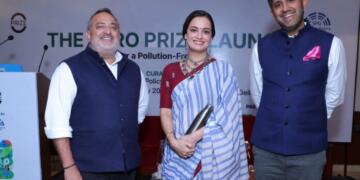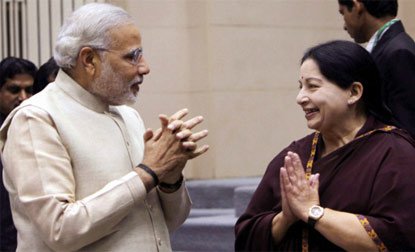In 2002, the Tamil Nadu assembly passed the Tamil Nadu Prohibition of Forcible Conversion of Religion Bill. The bill was one of CM Jayalalitha’s pet projects. In fact, during the tenure of her mentor, MGR, Tamil Nadu had been rocked by the conversion of around 150 families in Meenakshipuram. MGR had briefly considered passing an anti-conversion law before deciding to do nothing.
J Jayalalitha, who had returned to power in 2002 had decided that the time had come to regulate the thriving conversion industry in her state. She was bitterly opposed by her opponents- the DMK and the Congress who feared that the legislation would be used to harass minorities. But Jayalalitha would have none of that. Using the overwhelming majority that she enjoyed, Jayalalitha had the bill passed. Pope John Paul II chose to unwittingly wade into the controversy by complaining about the law. When quizzed on the Pope’s statements, Jayalalitha lambasted the Pope, asserting that he had no business or authority to comment on laws passed in the country. When a journalist pressed Jayalalitha, stating that the Pope was the supreme leader of the Christian community, Jayalalitha, famously shot back, ‘So what’? Such attitudes defined Amma through her political career. The leader of an avowedly Dravidian party, she frequently and openly courted pro-Hindutva parties and issues. Unlike other pro-Hindutva parties, notably the BJP, Amma was not afraid of speaking her mind instead of maintaining political correctness.
Jayalalitha’s flirtations with pro-Hindutva ideologies goes back in time. She supported Vajpayee’s 13-month government, even though BJP was only just coming out of political wilderness and was widely considered to be a political untouchable owing to its pro-Ram Mandir/pro-Hindutva leanings. That, she chose to cause the fall of that government is another matter, which embellished her credentials as an undependable ally. At the time of Godhra train burning and the violence that broke out in Gujarat, Amma was probably the only leader to bluntly say ‘the majority have rights too’. She harangued political leaders for their reluctance to condemn violence against the majority community.
At a time when Narendra Modi was being widely criticized for his role in the Gujarat riots both within his party and outside, Jayalalitha’s support came as a godsend.
Modi and Jayalalitha henceforth enjoyed good personal rapport.
Uniquely, Amma was also able to win her support across castes by forging a distinctive Hindu-Dravidian identity. For this, she played the Hindutva card to the gallery when required and transformed herself into Amma when necessary. It was this which helped her frequently win landslide victories in Assembly elections, in spite of Christian and Muslim minorities firmly siding up with rival DMK. Obviously, given the shrewd politician that she was, she offered electoral sops to the minorities in her efforts to wean them away from her opponents, but on the whole, Jayalalitha refrained from the brand of minority politicking that defines many political parties in the country.
While religion surely didn’t define Jayalalitha’s politics, it would not be wrong to say that in her death, the nation has lost a pro-Hindu voice!
References:
http://www.thehindu.com/thehindu/2003/06/14/stories/2003061405001100.htm




























